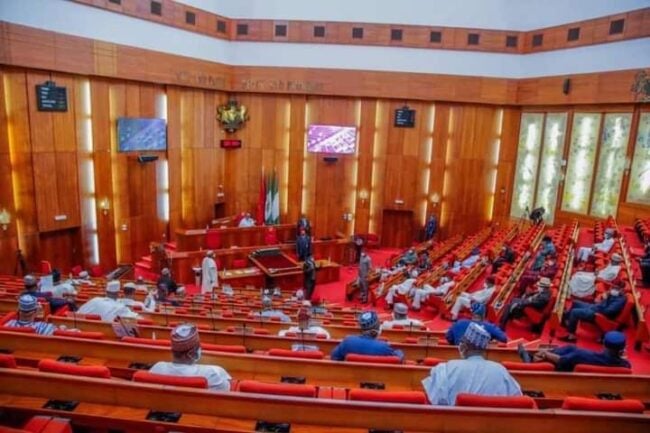BY ZUBAIDA BABA IBRAHIM
Despite being Africa’s highest producer of rice, Nigeria spent an average of $4.2bn on its importation. These statistics were the basis on which the ban on rice importation was implemented in 2019. The importation ban was initially for the revival of the nation’s economy which is mainly agrarian. However, the laudable strategy could not stop the smuggling of foreign rice by wayward local and foreign merchants especially from the nation’s neighboring countries; Niger, Cameroon and Benin Republic, who are not producers of rice but re-export to Nigeria.
This smuggling has impeded positive strides made by both private sectors and various government investments in the Rice sub-sector to increase its local capacity. Bearing the brunt of this misdeed has been the Nigerian Customs Service (NCS). Each time the menace arises, the NCS is presumed to give the green light for law-breaking individuals to bring in the prohibited commodity without any scrutiny.
Having said that, on Tuesday the 4th of May 2021, the Senate Committee On Ethics, Privileges and Public Petition ordered the NCS to return foreign rice it had confiscated from traders’ shops in Ibadan, alleging that the officers, who carried out their mandate erred by raiding the markets. This contradictory directive incurred the Rice Processors Association Nigeria (RIPAN) represented by its Director-General, Andy Ekwelem, to call upon the senate at a press conference to revisit their resolution.
Advertisement
“Indeed, we are shocked at the fact that now that the Nigeria Customs Service has decided to its duties creditably well and wield the big stick against Rice Smugglers, they are been antagonized and reprimanded by no other organ of Government than the Nigerian Senate,” Ekwelem said.
Although it seems like the Senate has no concerns for the plight of local rice farmers, rice processor, and the Nigerian economy at large, there are few factors that could give grounds to their order. One of them is the supply deficit of rice across the country. Rice as we know is a major staple food in Nigeria, consumed across all geopolitical zones and through socio-economic classes. However, KPMG Nigeria revealed that only about 57% of 6.7 million metric tons of rice consumed by Nigerians yearly is locally produced. If the population totally depends on the domestic supply of rice, the country could be vulnerable to chronic food shortages which will skyrocket the price of the commodity way beyond affordability.
Meanwhile, during the press briefing by RIPAN, some journalists pointed out that foreign-made rice is cheaper in the markets compared to the locally-produced ones. While the imported rice sells within the range of N21,000 to N23,000 per 50kg bag, the domestically produced ones sell within the range of N28,000 to N30,000, despite being home-grown. They also observed that rice produced in Nigeria is of low quality.
Advertisement
Responding, RIPAN spokesperson pointed out that some of the challenges were due to the fact that processing of rice from harvested paddy to edible rice entails parboiling the raw rice, drying and milling it before destoning which is an important and distinct feature of its production that small scale processors who make up 80% of local rice processors cannot afford the equipment.
On the raiding of traders’ shops, the members of the senate committee argued that the NCS breached the Customs and Excise Managements Act (CEMA) which empowers the agency to only impound smuggled goods within a 40-kilometer radius to the border. Their argument is not tenable because the same Act under section 147(1) states that any officer, without prejudice, where there are reasonable grounds to suspect that anything liable to forfeiture under the Customs and Excise laws can without a warrant enter a building or any place, at any time and search, seize, detain, remove any such thing.
The interference of the senate committee in the Nigerian Customs Service operation in response to a moral dilemma is in every respect ill-judged. Primarily, it compels one to believe that the Committee is just giving backing to smugglers and economic saboteurs at the expense of subduing the efforts of obliging Customs officers.
Likewise, it also disregards the hard work of the multitude of large scale farmers, rice processors, and individuals investing in paddy aggregation and agro-input dealerships for the betterment of domestically produced rice. And if this persists, it can lead to the crash of the entire rice processing and milling sub-sector that employs between thirteen to fifteen million Nigerians which will lead to the loss of jobs in a country where the labor market is not favorable.
Advertisement
The progression of the local rice production industry in Nigeria is inhibited by several factors like high transportation costs; low mechanization of rice farms; scarcity of labor due to alternative and more remunerative off-farm employment opportunities. Similarly, other factors include rural-urban migration; high cost of land preparation and the broad use of genetically inferior varieties that exhibit low productivity.
For this reason, the Federal Government has expended millions to grow local capacity in the rice sub-sector. Nigeria’s Agricultural Credit Scheme (ACSS), Commercial Agricultural Credit Scheme, and many other initiatives are the Government’s efforts to fund Nigerians who want to grow their own paddy to ensure food security, conserve foreign exchange and diversify the economy.
It would be a priority misplacement to embolden miscreants and destroy the collective zeal in pursuit of guaranteeing Nigeria’s upgrade from a food importing country to a food-producing nation for the beneficial effect of the economy.
Zubaida Baba Ibrahim wrote from Wuye District, Abuja.
She can be reached at [email protected]
Advertisement
Views expressed by contributors are strictly personal and not of TheCable.
Add a comment






